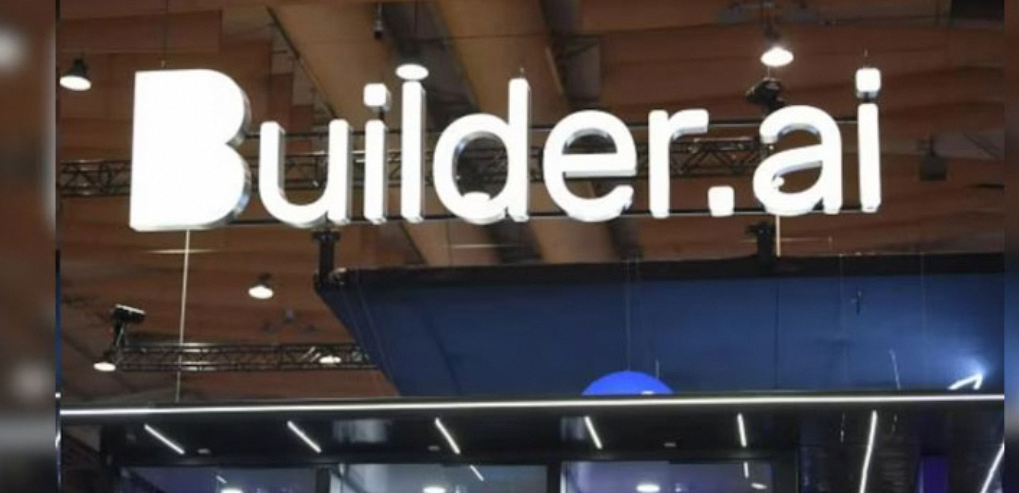AI Startup’s Collapse Sends Shockwaves Through Tech Industry
Once hailed as a rising star in the artificial intelligence sector, Builder.ai has now filed for bankruptcy protection, triggering widespread scrutiny and sparking debates around ethical practices in the tech startup ecosystem. The company, which claimed to revolutionize software development with artificial intelligence, is now facing allegations of misleading investors and clients by relying not on AI, but on hundreds of underpaid engineers in India.
The filing, made in a U.S. bankruptcy court this week, marks a dramatic fall from grace for a firm once valued at over $1.3 billion, with backing from high-profile investors and major clients.
The AI That Wasn’t: Human Labor Behind the Curtain
Despite positioning itself as an AI-driven software development platform, internal whistleblowers and investigative reports have revealed that Builder.ai’s operations were largely powered by a workforce of over 700 Indian engineers, many working in shifts around the clock to mimic AI-like speed and efficiency.
The platform promised customers the ability to create fully functional apps “as easily as ordering pizza,” with artificial intelligence streamlining the process. In reality, much of the work was being done manually behind the scenes, a strategy reminiscent of what critics call “pseudo-AI” — systems that present the illusion of automation while relying on human effort.
Sources familiar with the company’s operations stated that this model was never disclosed to investors or customers, many of whom believed they were buying into a fully automated solution.
Investor Deception and Lawsuits Looming
Several prominent venture capital firms, including SoftBank Vision Fund and Insight Partners, are now reassessing their due diligence processes after being blindsided by Builder.ai’s collapse. Insiders claim the company inflated its AI capabilities, and used buzzwords to attract over $250 million in investment funding.
Legal experts suggest that civil lawsuits and potential regulatory investigations are now on the horizon. Some investors have already hinted at pursuing legal action for misrepresentation and fraudulent claims.
Analysts believe the scandal may serve as a turning point in how investors evaluate AI startups, especially those with opaque operational models and unverifiable claims.
Employees Reveal Toxic Work Culture
In the wake of the bankruptcy filing, current and former employees of Builder.ai have come forward to describe what they call a toxic and exploitative work culture. Many of the engineers based in India reported long hours, unrealistic deadlines, and low compensation, all in service of maintaining the illusion of instant, AI-powered app development.
Some employees claim they were told to pose as AI-generated customer service agents, responding to client queries manually while appearing to be bots. Others said that despite working on complex development tasks, their contributions were neither acknowledged nor fairly compensated.
One former developer described it as “sweatshop coding disguised as AI innovation.”
Regulatory and Industry Response
The scandal has prompted discussions within the Indian IT community and international regulatory bodies about the need for stricter oversight of AI claims made by startups. India’s Ministry of Electronics and IT (MeitY) has reportedly begun reviewing employment and labor standards of tech companies with offshore development centers, particularly those serving global startups.
In the U.S. and U.K., where Builder.ai maintained client bases, consumer protection agencies are also reviewing complaints from customers who claim they were misled.
Meanwhile, industry experts are calling for clear labeling and transparency standards for companies offering AI solutions. “This is not just about one company,” said an analyst at Gartner. “It’s a warning to the entire ecosystem. If you’re faking AI with human labor, you’re not just misleading clients — you’re warping the entire market.”
Bankruptcy Proceedings and Future Uncertainty
As of now, Builder.ai’s assets have been frozen pending court hearings. The company has requested Chapter 11 bankruptcy protection in the U.S., citing unsustainable debt and loss of investor confidence.
Hundreds of pending projects for clients across Europe, the Middle East, and Asia remain in limbo. Former clients are left scrambling to retrieve code, data, and intellectual property from the company’s servers.
The founder and CEO, Sachin Dev Duggal, has yet to make a public statement, though internal memos indicate efforts to restructure or sell off assets.
